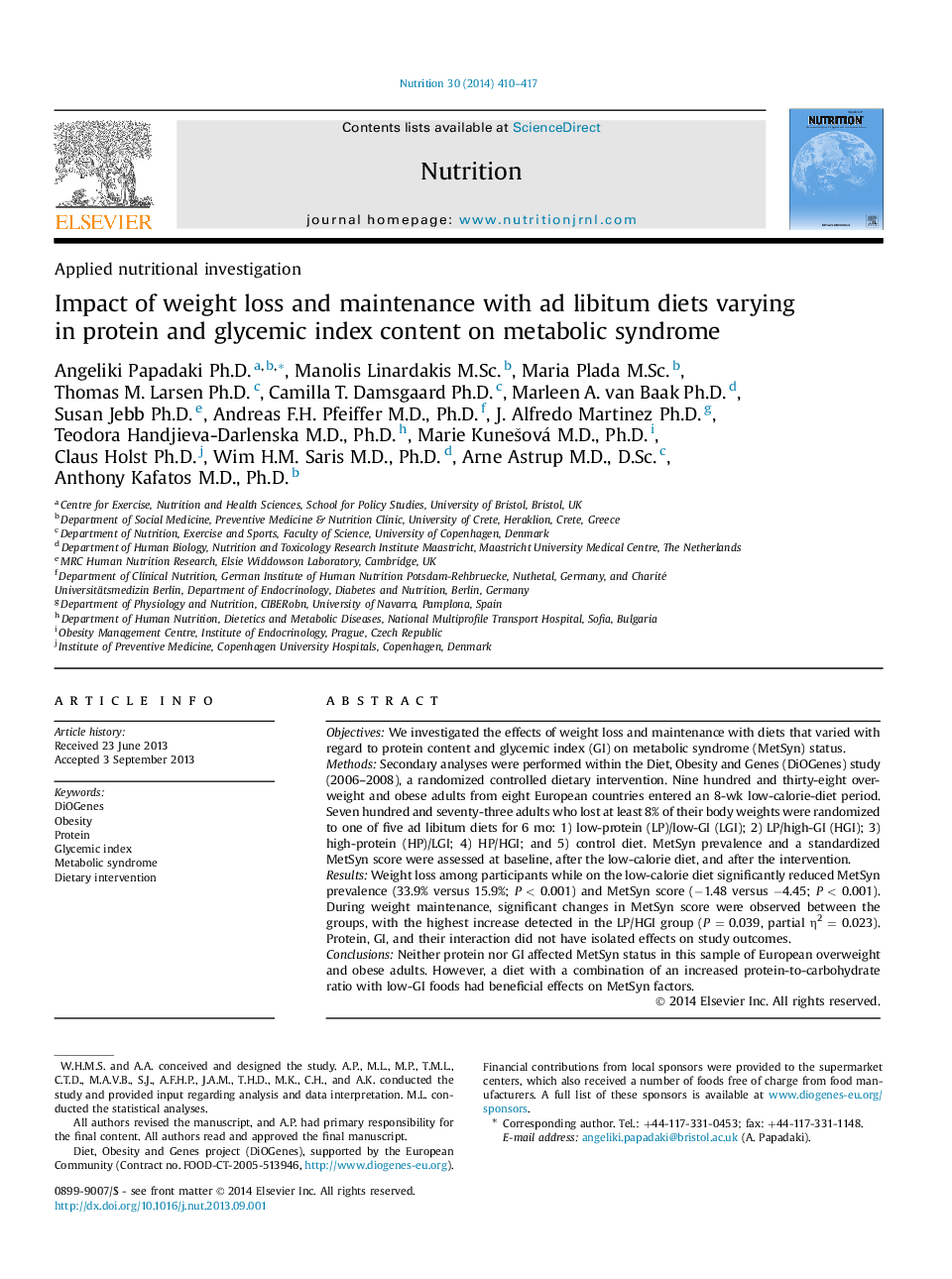| Article ID | Journal | Published Year | Pages | File Type |
|---|---|---|---|---|
| 3276365 | Nutrition | 2014 | 8 Pages |
ObjectivesWe investigated the effects of weight loss and maintenance with diets that varied with regard to protein content and glycemic index (GI) on metabolic syndrome (MetSyn) status.MethodsSecondary analyses were performed within the Diet, Obesity and Genes (DiOGenes) study (2006–2008), a randomized controlled dietary intervention. Nine hundred and thirty-eight overweight and obese adults from eight European countries entered an 8-wk low-calorie-diet period. Seven hundred and seventy-three adults who lost at least 8% of their body weights were randomized to one of five ad libitum diets for 6 mo: 1) low-protein (LP)/low-GI (LGI); 2) LP/high-GI (HGI); 3) high-protein (HP)/LGI; 4) HP/HGI; and 5) control diet. MetSyn prevalence and a standardized MetSyn score were assessed at baseline, after the low-calorie diet, and after the intervention.ResultsWeight loss among participants while on the low-calorie diet significantly reduced MetSyn prevalence (33.9% versus 15.9%; P < 0.001) and MetSyn score (−1.48 versus −4.45; P < 0.001). During weight maintenance, significant changes in MetSyn score were observed between the groups, with the highest increase detected in the LP/HGI group (P = 0.039, partial η2 = 0.023). Protein, GI, and their interaction did not have isolated effects on study outcomes.ConclusionsNeither protein nor GI affected MetSyn status in this sample of European overweight and obese adults. However, a diet with a combination of an increased protein-to-carbohydrate ratio with low-GI foods had beneficial effects on MetSyn factors.
